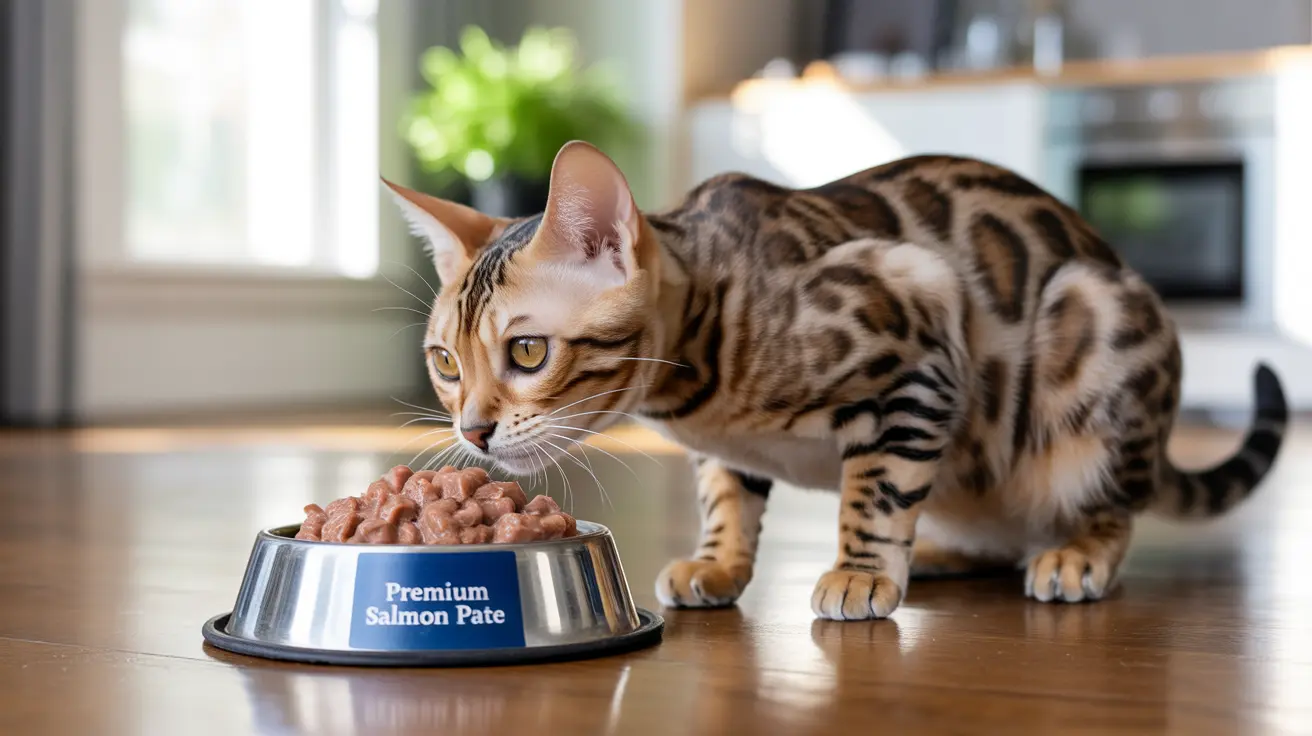As pet parents become increasingly conscious about their cats' nutrition, human grade cat food has emerged as a premium option that promises superior quality and health benefits. But what exactly makes cat food "human grade," and is it worth the investment? This comprehensive guide explores everything you need to know about this high-quality pet food category.
Understanding human grade cat food goes beyond marketing buzzwords - it represents a significant shift in how we approach feline nutrition, with strict standards and potential health benefits that deserve careful consideration.
What Defines Human Grade Cat Food?
Human grade cat food must meet rigorous standards that set it apart from conventional pet food. These products are manufactured in facilities certified for human food production and use ingredients that are safe for human consumption. Every component, from raw materials to the final product, must comply with FDA regulations for human food.
Unlike traditional "feed grade" pet foods, human grade products cannot contain rendered meats, by-products, or ingredients deemed unfit for human consumption. This higher standard ensures better quality control and safer manufacturing processes.
The Benefits of Choosing Human Grade Options
Superior Digestibility and Nutrient Absorption
Human grade cat food typically offers better digestibility due to higher-quality ingredients and gentler processing methods. Cats can more easily absorb essential nutrients from whole food sources, potentially leading to smaller portions and less waste.
Enhanced Health Outcomes
Many pet owners report noticeable improvements in their cats after switching to human grade food, including:
- Healthier skin and shinier coat
- Improved energy levels
- Better dental health
- Reduced allergic reactions
- More consistent digestion
Understanding Ingredients and Quality Standards
Human grade cat food typically features whole-food ingredients like:
- Fresh muscle meat and organs
- Wild-caught fish
- Whole grains (if included)
- Fresh vegetables and fruits
- Natural preservatives
These ingredients must be handled, processed, and stored according to human food safety standards, ensuring maximum freshness and nutritional value.
Making the Transition to Human Grade Cat Food
When switching to human grade cat food, a gradual transition over 7-10 days is recommended to prevent digestive upset. Start by mixing a small amount of the new food with your cat's current diet, slowly increasing the proportion of human grade food while decreasing the old food.
Cost Considerations and Value Assessment
While human grade cat food typically costs more than conventional options, many pet owners find the investment worthwhile when considering:
- Potential reduction in veterinary costs
- Better long-term health outcomes
- Higher nutrient density requiring smaller portions
- Reduced waste due to better digestibility
Frequently Asked Questions
What does "human grade cat food" mean and how is it different from regular cat food?
Human grade cat food is produced using ingredients and manufacturing processes that meet human food consumption standards. Unlike regular cat food, every ingredient must be edible by humans and produced in facilities certified for human food production.
How can feeding my cat human grade food improve their digestion and overall health?
Human grade cat food typically contains higher-quality proteins and fewer fillers, making it more digestible. This can lead to better nutrient absorption, improved gut health, and fewer digestive issues. Many cats show improved energy levels and coat condition after switching to human grade options.
Which human grade ingredients are safest and healthiest to include in my cat's diet?
The safest and healthiest human grade ingredients include fresh muscle meats, organ meats, fish, and limited amounts of vegetables. These should be properly prepared and balanced to meet feline nutritional requirements, especially regarding essential nutrients like taurine.
Are there any risks or special considerations when switching my cat to human grade cat food?
The main considerations include proper transition timing to avoid digestive upset, ensuring the food meets complete nutritional requirements, and proper storage of fresh or frozen products. Always consult with your veterinarian before making significant dietary changes.
How do I choose a high-quality human grade cat food brand that meets nutritional needs?
Look for brands that provide transparent ingredient sourcing information, meet AAFCO nutritional guidelines, and have third-party quality certifications. Consider factors like your cat's age, health status, and specific nutritional needs when selecting a product.
Conclusion
Human grade cat food represents a significant advancement in feline nutrition, offering superior ingredients and stricter quality controls than traditional pet food. While it requires a greater financial investment, the potential benefits to your cat's health and well-being make it worth considering for many pet owners. As with any dietary change, consult with your veterinarian to ensure it's appropriate for your cat's specific needs.






